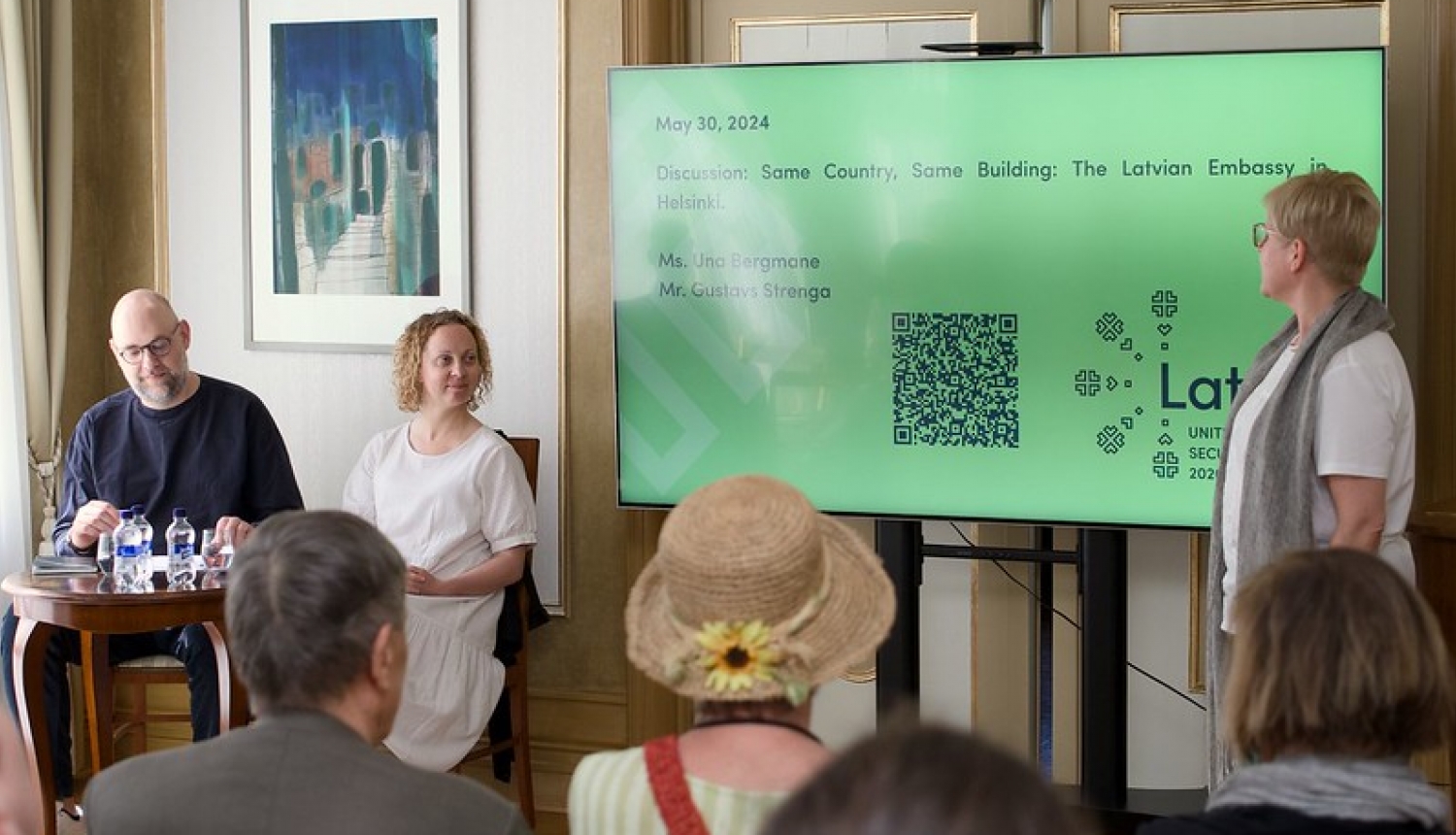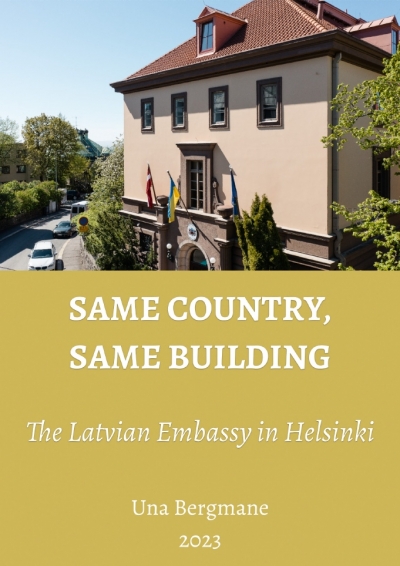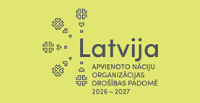In response to the considerable interest expressed by fellow diplomats and other cooperation partners, on 30 May, the Embassy organised another discussion and historical photo slide show in Helsinki, with the participation of the young generation of Latvian historians Una Bergmane and Gustavs Strenga.
In a discussion moderated by historian Gustavs Strenga, researcher Una Bergmane discussed her essay “Same Country, Same Building” and the history of the building of the Latvian Embassy in Finland as a symbol of the continuity of historical processes.
“Can Right Conquer Might, and what lessons can be learnt from the past of the Baltics? What were the relations between Latvia and Finland after the establishment of the Finnish and Latvian states in 1917 and 1918? Was Finland an important partner for Latvia in the inter-war period? Is there a relationship between the non-recognition of the occupation of the Baltic states and the non-recognition of the annexation of Crimea? What happened to the building after the armistice between Finland and the USSR in 1944? The role of pre-war Latvian diplomats who were still alive at the end of the 1980s in the international recognition of Latvia in the early 1990s was a topic of discussion at the event. In addition to this, other questions were also addressed.
Following the discussion, the participants viewed historical photographs and observed the architectural gems of the interior design of the building, including the original fresco secco (dry fresco) by Finnish artist Bruno Tuukkanen on the ceiling and walls. Bruno Tuukkanen has also created similar frescoes in the Finnish Parliament, the University of Helsinki and several churches. Bruno Tuukkanen is one of the two authors of the modern Finnish flag as well. The cultural and historical stories of the building were collected and presented by translator and journalist Gunta Pāvola.
Una Bergmane is the Latvian Historian of the Year and has also been internationally recognised, receiving the Cambridge Baltic Geopolitics Network Publication Prize 2024 for her book “Politics of Uncertainty: The United States, the Baltic Question, and the Collapse of the Soviet Union”.
Una Bergmane is currently a Fellow of the Academy of Finland, researcher and lecturer at the Aleksanteri Institute of the University of Helsinki.
Historian Gustavs Strenga is a senior research fellow at the Institute of Culture and Arts, Latvian Academy of Culture. He has also worked as a researcher at the Universities of Freiburg, Tallinn and Greifswald, and has curated exhibitions at the National Library of Latvia.
The events were implemented as part of the public diplomacy programme in support of the lobby campaign of Latvia’s candidature for the United Nations Security Council. The campaign under the motto of “Together for peace and resilience” aims at ensuring successful election of Latvia to the United Nations Security Council for the 2026–2027 term in the 2025 election, at which Latvia is running for an elected member’s seat for the first time. Membership of the UNSC will be a key instrument in pursuit and protection of Latvia’s foreign policy interests, as well as making it possible for Latvia to expand the scale of its international cooperation and thereby contributing to world peace and resilience.







